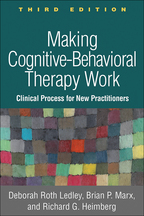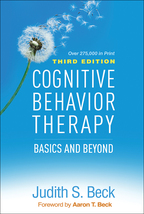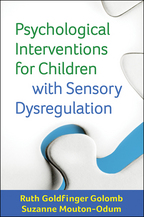Treatment Planning in Psychotherapy
Taking the Guesswork Out of Clinical Care
Sheila R. Woody, Jerusha Detweiler-Bedell, Bethany A. Teachman, and Todd O'Hearn
Paperbacke-bookprint + e-book
Paperback
orderAugust 11, 2004
ISBN 9781593851026
Price: $41.00251 Pages
Size: 6" x 9"
Copyright Date: 2003
“...a significant addition to the treatment planning resources that are available to today's clinicians....its focus on the importance of ongoing patient assessment and treatment plan review and revision during an episode of care makes it a unique and important contribution to the field and an excellent supplement to other works on the topic.”

—Contemporary Psychology
“Woody and coauthors have produced an excellent book that offers a scientifically rigorous and clinically sensitive assessment system. Adoption of their system by any clinician would go a long way toward ensuring that clients receive optimal psychological services.”

—The Clinical Psychologist
“The authors' system helps the empirically oriented practitioner implement the steps necessary to identify and prioritize clients' problems, establish mutually agreed-upon treatment goals, and measure the outcomes of psychotherapy. Clinicians will find specific ideas on planning the different phases of treatment, harnessing client motivation, and overcoming pitfalls, as well as tools for assessment and progress evaluation. A superb primary practice textbook for graduate students.”

—Canadian Association of Social Work Bulletin
“The book is particularly well-suited to graduate students, possibly as an introductory textbook for a course in psychotherapy planning and evaluation. It will also be a valuable guide for clinicians working in training settings or for more experienced therapists who would like to incorporate these strategies in their work....Will not only likely help therapists manage their cases more effectively and subsequently provide clients and patients with explicit knowledge about the progress and outcome of their therapy, but is also likely, with minimal effort, to produce a great deal of valuable data for case studies, case series, and other clinically useful and publishable evaluations of both progress and outcome in clinical care.”

—Canadian Psychology
“This book is a marvelous contribution to the evidence-based practice movement in mental health. The authors' Planning and Assessment in Clinical Care (PACC) system helps the empirically oriented practitioner operationalize the steps necessary to identify and prioritize client problems, establish mutually agreed-upon treatment goals, and measure the outcomes of psychotherapy. PACC breathes new life into the long-advocated but little-implemented practice of integrating single-client evaluation designs into routine clinical practice. The case studies exemplify the best of evidence-based care in psychotherapy. This will make a superb primary practice textbook for graduate students in professional psychology, social work, psychiatry, counseling, and nursing.”

—Bruce A. Thyer, PhD, LCSW, School of Social Work, Florida State University
“This book is a boon for the practicing clinician as well as the graduate student beginning psychotherapy training or taking a course in behavioral assessment. Step by step, Woody et al. coach the reader in the use of an empirically oriented but idiographic approach to psychotherapy. Readers interested in problem-oriented psychotherapy, regardless of their specific theoretical orientation, will find much of value in this user-friendly work replete with examples of the complex cases encountered in real practice.”

—Dianne L. Chambless, PhD, Department of Psychology, University of North Carolina at Chapel Hill
“Woody et al. have provided a highly useful guide for clinicians of all levels of experience, regardless of theoretical orientation. The PACC model provides general strategies and concrete plans for tailoring treatment to each patient. Clinicians will find specific ideas on planning the different phases of treatment, harnessing client motivation, and overcoming pitfalls, as well as tools for assessment and progress evaluation. The Appendix includes a full range of widely studied self-report instruments that will prove invaluable.”

—Robert L. Leahy, PhD, Department of Psychiatry, Weill-Cornell University Medical College; Director, American Institute for Cognitive Therapy
—Contemporary Psychology
“Woody and coauthors have produced an excellent book that offers a scientifically rigorous and clinically sensitive assessment system. Adoption of their system by any clinician would go a long way toward ensuring that clients receive optimal psychological services.”
—The Clinical Psychologist
“The authors' system helps the empirically oriented practitioner implement the steps necessary to identify and prioritize clients' problems, establish mutually agreed-upon treatment goals, and measure the outcomes of psychotherapy. Clinicians will find specific ideas on planning the different phases of treatment, harnessing client motivation, and overcoming pitfalls, as well as tools for assessment and progress evaluation. A superb primary practice textbook for graduate students.”
—Canadian Association of Social Work Bulletin
“The book is particularly well-suited to graduate students, possibly as an introductory textbook for a course in psychotherapy planning and evaluation. It will also be a valuable guide for clinicians working in training settings or for more experienced therapists who would like to incorporate these strategies in their work....Will not only likely help therapists manage their cases more effectively and subsequently provide clients and patients with explicit knowledge about the progress and outcome of their therapy, but is also likely, with minimal effort, to produce a great deal of valuable data for case studies, case series, and other clinically useful and publishable evaluations of both progress and outcome in clinical care.”
—Canadian Psychology
“This book is a marvelous contribution to the evidence-based practice movement in mental health. The authors' Planning and Assessment in Clinical Care (PACC) system helps the empirically oriented practitioner operationalize the steps necessary to identify and prioritize client problems, establish mutually agreed-upon treatment goals, and measure the outcomes of psychotherapy. PACC breathes new life into the long-advocated but little-implemented practice of integrating single-client evaluation designs into routine clinical practice. The case studies exemplify the best of evidence-based care in psychotherapy. This will make a superb primary practice textbook for graduate students in professional psychology, social work, psychiatry, counseling, and nursing.”
—Bruce A. Thyer, PhD, LCSW, School of Social Work, Florida State University
“This book is a boon for the practicing clinician as well as the graduate student beginning psychotherapy training or taking a course in behavioral assessment. Step by step, Woody et al. coach the reader in the use of an empirically oriented but idiographic approach to psychotherapy. Readers interested in problem-oriented psychotherapy, regardless of their specific theoretical orientation, will find much of value in this user-friendly work replete with examples of the complex cases encountered in real practice.”
—Dianne L. Chambless, PhD, Department of Psychology, University of North Carolina at Chapel Hill
“Woody et al. have provided a highly useful guide for clinicians of all levels of experience, regardless of theoretical orientation. The PACC model provides general strategies and concrete plans for tailoring treatment to each patient. Clinicians will find specific ideas on planning the different phases of treatment, harnessing client motivation, and overcoming pitfalls, as well as tools for assessment and progress evaluation. The Appendix includes a full range of widely studied self-report instruments that will prove invaluable.”
—Robert L. Leahy, PhD, Department of Psychiatry, Weill-Cornell University Medical College; Director, American Institute for Cognitive Therapy













